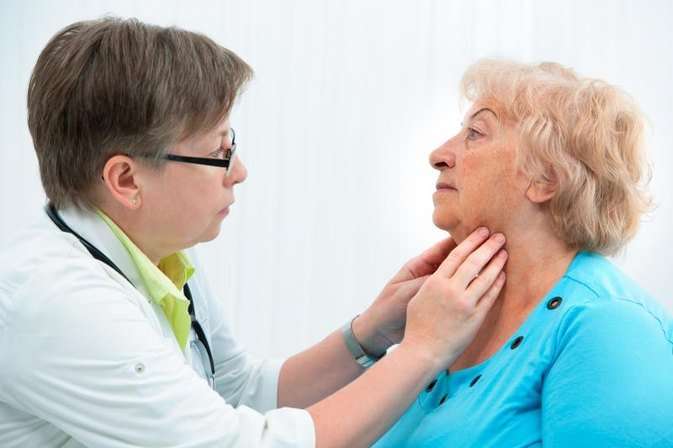Other Causes And Treatments Of Swollen Glands
Can allergies cause swollen glands? Sometimes. Other causes of swollen glands include:
|
Common Infections |
|
The treatment of swollen glands will depend on the underlying cause.
- Swollen lymph nodes due to a viral infection tend to resolve on their own after the viral infection resolves. However, antiviral medications may be recommended.
- Swollen lymph nodes due to a bacterial infection require antibiotic treatment.
- Swollen lymph nodes due to HIV/AIDS infection require specific treatment for this medical condition.
- Swollen lymph nodes due to immune disorders such as rheumatoid arthritis or lupus require treatment directed on the underlying cause.
- Swollen lymph nodes due to cancers require specific treatment depending on the type of cancer. In general, treatments include surgery, radiation therapy or chemotherapy.
Seek immediate medical help in cases when swollen lymph glands are accompanied with:
- High fever
- Redness of the skin over the swollen lymph nodes
- Night sweats
The Symptoms Of Swollen Lymph Nodes
Swollen lymph nodes are usually detected through physical examination. They feel like soft, circular bumps. You can gently press areas like the side of your neck to see if there is swelling. Some people experience tenderness in their lymph nodes and may experience pain when they are chewing food or when they turn their neck in a certain direction. Swollen lymph nodes in the groin area may cause pain when you walk or bend.
You should consider visiting a physician if the swelling has not reduced after a few weeks or has increased, if the lymph nodes feel hard when you press them, if you have difficulty swallowing or breathing, and if you have a sore throat. Swollen lymph nodes accompanied by weight loss , and a persistent fever is also a source of concern.
Dealing With Swollen Glands
If you have swollen lymph nodes, then you might be in pain. Ask your doctor about an over-the-counter pain or allergy medication, which can reduce your symptoms. You can also try using a warm compress on the area. While this will not reduce swelling, it might help to relieve some of the pain. Finally, monitor your symptoms so you can share them with your doctor.
You May Like: How Can Type I Allergic Reactions Be Diagnosed
What Is Food Intolerance
A food intolerance isnt the same as a food allergy.
People with food intolerance may have symptoms such as diarrhoea, bloating and stomach cramps. This may be caused by difficulties digesting certain substances, such as lactose. However, no allergic reaction takes place.
Important differences between a food allergy and a food intolerance include:
- the symptoms of a food intolerance usually occur several hours after eating the food
- you need to eat a larger amount of food to trigger an intolerance than an allergy
- a food intolerance is never life threatening, unlike an allergy
Read more about food intolerance.
Page last reviewed: 15 April 2019 Next review due: 15 April 2022
Read Also: Can You Eat Twix With A Peanut Allergy
Swollen Lymph Nodes Unrelated To Allergies

Many illnesses can cause swollen lymph nodes. Some conditions, like a head cold, might be confused with allergies due to similar symptoms.
Other illnesses can occur coincidentally in a person already experiencing allergies and lead to lymph node swelling.
Common infections that may coexist with allergies and cause swollen lymph nodes in the head and neck include: — Upper respiratory tract infection.
— Throat infection. — Pink eye. — Infectious mononucleosis.
Less common causes of swollen lymph nodes in the head and neck region that are unrelated to airborne allergies but can occur along with them include: — Infections, such as HIV, syphilis and cat scratch disease. — Cancer, such as leukemia, lymphoma, and head and neck cancer 4. — Autoimmune conditions, such as lupus and sarcoidosis.
- Many illnesses can cause swollen lymph nodes.
- Less common causes of swollen lymph nodes in the head and neck region that are unrelated to airborne allergies but can occur along with them include: — Infections, such as HIV, syphilis and cat scratch disease.
- —
Don’t Miss: Can You Take Robitussin With Allergy Medicine
What Swollen Lymph Nodes Mean
Like we mentioned, swollen glands are usually a sign of an infection. This is because your lymph nodes swell when the lymphatic system is fighting off a pathogen. Usually, swollen glands will get better as your body heals from the infection. But if your glands are severely swollen and the pain does not subsist, then talk to your doctor.
What Are Swollen Lymph Nodes
Swollen lymph nodes are essentially harmless lumps and usually go away within a week or two, but they can also be a sign of something more serious.
Swollen lymph nodes , which are also known as lymphadenitis, can be caused by various conditions and are most commonly linked to viral infections, fungal infection and stress. Stress can also cause lymphatic swelling in other parts of the body, such as the spleen and stomach.
Also Check: Does Alcohol Make Asthma Worse
Read Also: Is Cetirizine Non Drowsy
Common Infectious Causes Of Swollen Lymph Nodes
The more common infectious causes of swollen lymph nodes include viral and bacterial infections. Some of these conditions caused by bacteria are associated with serious and potentially life-threatening complications if they are not treated with antibiotics. Infectious causes include:
-
Common cold
-
Metastasized cancer that has spread to the lymph nodes
- Oral, mouth or larynx
What Causes Lung Cancer
Cigarettesmoking is the most important cause of lung cancer. Research as far back as the 1950s clearly established this relationship.
- Cigarette smoke contains more than 4,000 chemicals, many of which have been identified as causing cancer.
- A person who smokes more than one pack of cigarettes per day has a 20-25 times greater risk of developing lung cancer than someone who has never smoked.
- Once a person quits smoking, his or her risk for lung cancer gradually decreases. About 15 years after quitting, the risk for lung cancer decreases to the level of someone who never smoked.
- Cigar and pipe smoking increases the risk of lung cancer but not as much as smoking cigarettes.
About 90% of lung cancers arise due to tobacco use. The risk of developing lung cancer is related to the following factors:
- The number of cigarettes smoked
- The age at which a person started smoking
- How long a person has smoked
Other causes of lung cancer, including causes of lung cancer in nonsmokers, include the following:
Another cancer known as mesothelioma is also strongly associated with exposure to asbestos.
Read Also: Twix Peanut Free
How To Know If You Have Food Allergies
Nasal congestion, eye irritation, throat irritation, cramping, vomiting, nausea, asthma and inner-ear irritation are all common symptoms of a food allergy 2 .cause: The American Academy of Otolaryngology states that allergies can cause excessive swelling in the ear, leading to a secondary ear infection 3.
Dont Miss: What Allergy Medicine Is Stronger Than Zyrtec
Your Body And Food Allergies
When a patient is allergic to a food or additive ingredient, they usually encounter symptoms like hives, wheezing, confusion, and stomach pain. Some allergic reactions can actually be life-threatening if they cause so much inflammation that the tongue swells enough to block off a persons airways. With certain intense food allergies, the immune response to foreign allergens can also be so strong that it can send a person into anaphylactic shock, which can be fatal.
Over 50 million Americans have some sort of allergy. Common food allergies include milk, eggs, tree nuts, peanuts, fish/shellfish, wheat and soy. These can cause symptoms such as vomiting, stomach cramps, hives, shortness of breath, wheezing, coughing, trouble swallowing, a weak pulse, dizziness, fainting and more.
Don’t Miss: Claritin Dissolving Tablets
Swollen Lymph Nodes Related To Allergy Complications
Although allergies typically do not cause lymph node swelling, infectious complications of airborne allergies can cause swollen glands. For example, sinus and middle ear infections sometimes develop in people battling airborne allergies due to pollen, pet dander, mold or another allergen.
These infections can cause swollen and tender lymph nodes in the head and neck area 1. The enlarged lymph nodes return to normal size once the infection clears.
- Although allergies typically do not cause lymph node swelling, infectious complications of airborne allergies can cause swollen glands.
What Are Lymph Nodes Again

Lymph nodes are part of your lymphatic system, a network that routes lymph fluid throughout your body, according to the American Cancer Society . Your lymph system is a crucial part of your immune system.
The job of your lymph system is to collect fluid, waste material, viruses, and bacteria that are in your tissues and send them to your lymph nodes. These nodes are small structures that work as filters for harmful substances, the ACS explains. They help fight infection by attacking and destroying germs that are carried to them by lymph fluid.
You have hundreds of lymph nodes located all around your bodysome are deep in your body, like between your lungs or around your bowel, and others are closer to your skin.
After lymph fluid flows around your body, it dumps filtered fluid, salts, and proteins back into your bloodstream.
Also Check: Cetirizine Vs Levocetirizine
When To Seek Medical Advice
If you think you or your child may have a food allergy, its very important to ask for a professional diagnosis from your GP. They can then refer you to an allergy clinic if appropriate.
Many parents mistakenly assume their child has a food allergy when their symptoms are actually caused by a completely different condition.
Commercial allergy testing kits are available, but using them isnt recommended. Many kits are based on unsound scientific principles. Even if they are reliable, you should have the results looked at by a health professional.
Read more about diagnosing food allergies.
What Are The Symptoms Of Swollen Lymph Nodes
Lymph nodes having additional symptoms like night sweats, night chills, fatigue, weight loss and a high fever. If you experience any of these symptoms, or if you have painful swollen lymph nodes and no other symptoms, consult your doctor. Lymph nodes that are swollen but not tender can be signs of a more serious condition.
Read Also: Claratim
When To See A Doctor For Neck Pain Along The Lymph Nodes
Treatment for neck pain along the lymph nodes will depend on the specific cause. Your healthcare provider may make the following suggestions/treatments in the setting of neck swelling.
- Antibiotics: If your symptoms are due to a bacterial cause, your physician will prescribe the appropriate antibiotics.
- Supportive care: Many causes of enlarged lymph nodes may be viral in nature. Viral causes will not resolve with antibiotics, and your physician will most likely suggest supportive remedies, such as resting or pain relief if that is the case.
- Cancer treatment: Lymphoma treatment may involve chemotherapy, immunotherapy medications, radiation therapy, a bone marrow transplant or some combination of these. Other cancer treatments involve similar treatment modalities as well.
Immune Response To Allergens
An allergy develops when the immune system mistakenly identifies a harmless allergen, like pollen, as harmful.
Initial exposure to the allergen stimulates production of allergen-specific antibodies called immunoglobulin E . These antibodies attach to immune cells called mast cells, which populate tissues like the skin and the lining of the nose, lung, stomach and intestines.
Once allergen-specific IgE antibodies form, subsequent exposure to that allergen stimulates mast cell activation, with release of histamine and inflammatory chemicals called cytokines. These chemicals trigger allergy-related symptoms like a runny nose, itchy eyes and throat, sneezing and wheezing.
- An allergy develops when the immune system mistakenly identifies a harmless allergen, like pollen, as harmful.
- Once allergen-specific IgE antibodies form, subsequent exposure to that allergen stimulates mast cell activation, with release of histamine and inflammatory chemicals called cytokines.
You May Like: Skin Allergy Pills
What Causes Swollen Lymph Nodes Behind The Ear
What causes swollen lymph nodes behind the ears? There are a number of causes of swollen glands behind the ear.
A lump behind the ear is caused by a range of issues including infections, acute or blunt force injuries, autoimmune disorders, cancer, German measles, an abscessed tooth, an allergic reaction, influenza or rhino viruses, strep throat, or lipoma.
How To Treat Swollen Lymph Nodes Behind The Ear
Treatment for swelling behind the ears depends on the cause. It is very important that you follow-up with your physician to know the appropriate treatment. Swollen lymph node behind the ear treatments include:
- Antibiotics should be used if the cause of your swollen lymph nodes behind the ear is bacterial infections. Please keep in mind that antibiotics are not effective to treat viruses and if viral infections are the cause of your swollen lymph nodes behind the ear, then you should avoid antibiotics.
- Allergic reactions can be treated with anti-histamines and anti-inflammatory medication.
- Pain killers may be used to relieve pain, after consulting your physician.
Home remedies to treat swollen lymph nodes:
- A warm, wet cloth put on the area can help relieve pain.
- Pain from swollen lymph nodes behind the ear can be relieved with advil, aspirin, or tylenol.
- Rest is always recommended when you feel run down, or your immune system is compromised.
- Fungus and bacteria can be treated with a daily glass of apple cider vinegar.
- Swollen lymph nodes behind the ear can be treated with gargling turmeric in water or salt water.
- Cysts or abscesses can be treated using tea tree oil. Simply soak a Q-tip in tea tree oil and apply it to the area for a few minutes. Wash with oil-free soap immediately following the application.
- Castor oils penetrating properties can help. Massage the lump behind the ear with castor oil.
You May Like: Zurtech
How Do You Treat Swollen Lymph Nodes In The Neck Naturally
Common home remedies to treat the symptoms of swollen lymph nodes include:
Can Lymph Nodes Become Inflamed Due To Allergies

Yes, since allergies affect the immune system and this causes inflammation of the lymph nodes, usually in the throat/neck area, due to the overwork of the immune system to fight the infection.
This is usually seen in children and adults who suffer from allergies and that cause throat or sinus infections, although seasonal allergies are not usually the main causes of swollen glands since they are not enough for it to happen.
Don’t Miss: Do Allergies Make Lymph Nodes Swell
How Does A Person Become Allergic
Allergens can be inhaled, ingested, or enter through the skin. Common allergic reactions, such as hay fever, certain types of asthma, and hives are linked to an antibody produced by the body called immunoglobulin E . Each IgE antibody can be very specific, reacting against certain pollens and other allergens. In other words, a person can be allergic to one type of pollen, but not another. When a susceptible person is exposed to an allergen, the body starts producing a large quantity of similar IgE antibodies. The next exposure to the same allergen may result in an allergic reaction. Symptoms of an allergic reaction will vary depending on the type and amount of allergen encountered and how the body’s immune system reacts to that allergen.
Allergies can affect anyone, regardless of age, gender, race, or socioeconomic status. Generally, allergies are more common in children, but may occur at any age. Allergic reactions may come back after many years of remission. Hormones, stress, smoke, perfume, or environmental irritants may also play a role in the development or severity of allergies.
Your Local Urgent Care Can Help
You dont have to suffer with uncomfortable symptoms! The team at San Ramon Urgent Care can quickly get to the bottom of your issues. Whether you have allergies, the common cold, or a different condition altogether, we will diagnose and treat your condition. Call us to learn more, or stop by our clinic today!
Read Also: Which Allergy Medicine Works Fastest
Overview Of Swollen Painless Lymph Nodes In The Neck Armpits Or Groin
Swollen lymph nodes usually occur as a result of infection from bacteria or viruses. Rarely, swollen lymph nodes are caused by cancer.
Your lymph nodes, also called lymph glands, play a vital role in your bodys ability to fight off infections. They function as filters, trapping viruses, bacteria and other causes of illnesses before they can infect other parts of your body. Common areas where you might notice swollen lymph nodes include your neck, under your chin, in your armpits and in your groin.
In some cases, the passage of time and warm compresses may be all you need to treat swollen lymph nodes. If an infection causes swollen lymph nodes, treatment depends on the cause.
S For Managing Your Sore Throat
The first step in managing your allergy-induced sore throats is visiting a professional. From there, we can determine the root cause of your allergy, and help you create a personalized plan for removing the trigger from your life and/or ways to manage your allergies when removing the trigger isnt a realistic solution.
Short Term Relief
Providing short-term relief for a sore throat can usually be accomplished through the use of simple but effective home remedies. Drink warm liquids, especially tea with honey or lemon, and chicken broth or bouillon. Cold liquids can also help. Suck on Popsicles, hard candy, or throat lozenges to soothe irritation. Gargle with warm salt water several times a day. Use a humidifier or vaporizer to moisten the air.
Long Term Relief
More long-term solutions can involve immunotherapy, which is a series of allergy shots designed to build up your bodys immune system against the allergen causing you and your body stress.
Also Check: Etiology Of Allergy

